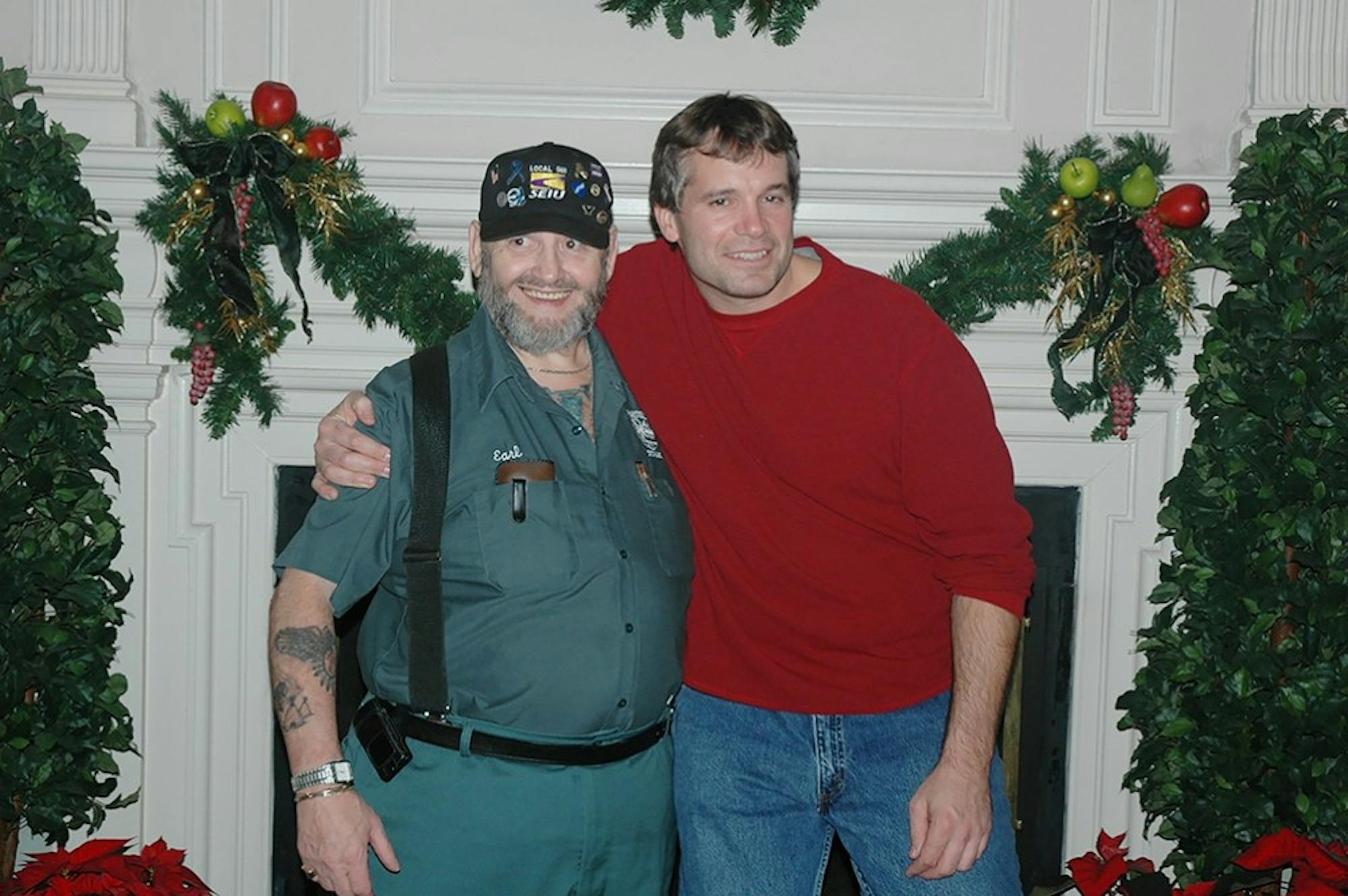Earl Sweet was a straight-shooter, a union president who demanded fairness and a vibrant personality who tenaciously fought for service employees at Dartmouth, according to the many individuals who worked with him in his 35 years as the leader of the Service Employees International Union Local 560.
Sweet was 70 when he died on Jan. 18 in the comfort of his home in Lebanon, after a lengthy battle with cancer. He had been fighting his illness while still doing his work for the union, his daughter Karen White said.
“He was very passionate as the union president,” she said. “He just wanted to make [working conditions] better for the workers and he didn’t realize how liked he was. He just enjoyed it, even when he was sick.”
During his time as president, Sweet represented more than 500 painters, custodians, maintenance workers and dining employees. The union representative for all negotiations between the College and workers, Sweet was a leader and a mentor to many union officers, SEIU Local 560’s vice president Chris Peck said.
“He helped build our union contract, from health benefits, wages and safety,” Peck said. “He came in all times of the day, even at the middle of the night. He always took phone calls and he helped people, not just in union matters but personal matters. He was an all-around good guy.”
Sweet was natural leader who had a great control of situations and a way of getting people to listen, Peck said.
“He was stern, but there were times when he could be soft-spoken, and he just knew when to use his personality to put humor into situations or when he needed to be serious,” Peck said. “He was very knowledgeable. He taught us all quite a bit.”
Safety and Secruity patrol officer Ted Willey said Sweet had been a mentor for him during his time at Dartmouth.
“He was always a good person to learn from, he was always so fair,” Willey said. “He took care of everyone. It didn’t matter what your status was or if you were important.”
Sweet always understood when something wasn’t fair, and always fought for fairness, Willey said. His emphasis on fairness was why he was so passionate about his work with SEIU Local 560.
“He talked about how important unions were and giving workers more rights,” White said. “That was his big thing, protecting his workers. When he believed in something, he put his whole heart into it. He really did.”
Sergeant-at-arms for SEIU Local 560 Lesia Vorachak said that Sweet was always making strong decisions as a leader, regardless of whether management approved his decisions, and based his choices on what felt right by the members of the union.
Before being hired as a full time employee by the College, Vorachak had been one of its many long-time temporary workers. When Sweet discovered that temporary workers could be employed for years by the College without given a full-time position, he worked to implement a new policy where temporary workers could only work for certain amounts of time before the College had to hire them for a union position.
“He was a straightshooter; he always protected people with what he thought was the fairest, and would fight really hard for that,” Vorachak said.
For a duration of his time at Dartmouth, Sweet was also involved with student and faculty activists during a period of large scale layoffs.
Sometimes Sweet did not know what to think of the group, which included international students, people of color, individuals who identified as queer or transfolk, as well as their discussions using terms such as “microaggressions” and “intersectionality,” former Dartmouth professor Russell Rickford said.
“Nevertheless, Earl was an organizer, through and through,” Rickford said. “I imagine that his many years in the labor struggle taught him that you don’t turn away allies, no matter how curious or esoteric they might seem.”
Sweet’s alliance with students included one with the Students Stand with Staff founding members, history professor Annelise Orleck said. That community of students, faculty, union members, alumnis and retirees felt like a very positive version of the Dartmouth community, she said.
As a figure on campus, Sweet was a large and colorful personality, according to his colleagues. With tattooed arms, oversized suspenders and generous belly, Sweet evoked an earlier era of organized labor, Rickford said.
His union hat covered with pins and his truck covered with labor movement bumper stickers, including one that said, “The Labor Movement: The Folks Who Brought You the Weekend,” according to Orleck, were two of Sweet’s characteristic items. Peck said that he had taken the hat back with him from Sweet’s home after he had passed, and planned to put the hat in a box to display in the office. The truck went to Sweet’s daughter.
“Everybody knows that truck — you can’t help it, with that license plate and all of those stickers,” White said. “He was a big man around here and I didn’t realize how big of a man he was until now.”




